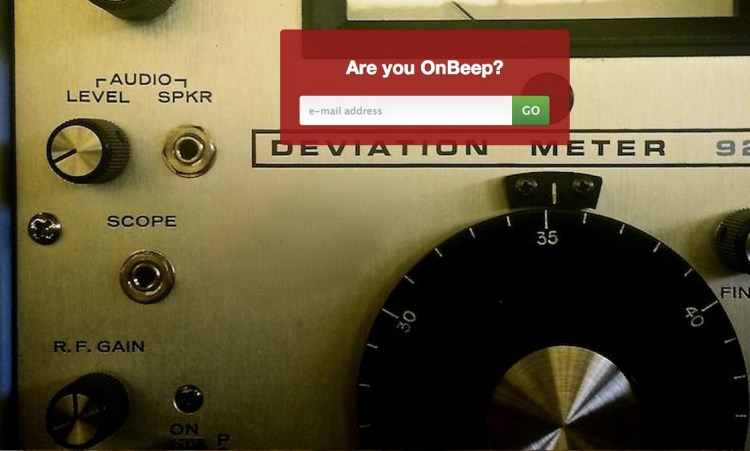The San Francisco startup OnBeep has said next to nothing about its plans. But a cofounder revealed to VentureBeat today that it’s using expertise gleaned from early employees who worked at Nextel, Amazon.com, and Splunk to create a wearable device.
OnBeep raised $445,000 last year, but that’s a tiny bit of capital for a hardware startup that’s looking to “directly change the lives of everyone on the planet,” to use the words of Jesse Robbins, an OnBeep cofounder and the chief executive.
“My joke here is that every time one of our product engineers needs a new thing, it cost between $3,000 and $7,000 [per person],” he said. “And they need a new thing all the time.”
As Robbins spoke on the phone with VentureBeat today, he stopped short of describing the wearable’s size, function, price, and other details, although a look on the team’s experience could show what’s possible.
Robbins spent five years at Amazon.com, where he was known as the “master of disaster,” ensuring that all sites bearing the company’s name was highly available. He cofounded Opscode, which became Chef and is now a leading “devops” tool for automating IT infrastructure.
Another cofounder, Roger Wood, led up product design and marketing for the mobile communications company Nextel, which Sprint bought. Cofounder Greg Albrecht was a senior software engineer at hardware- and application-monitoring company Splunk, which went public in 2012. Hardware engineer Neil Girling worked at Ekso Bionics, a company that has developed a wearable suit that can help people stand up and walk.
Such a diverse background indicates that the company has the talent to build hardware, big mobile networks, and scale applications across many servers in a reliable way. The company is looking for iOS and Android developers, so those OSes should work with the wearable.
Given all of that, the company is probably going to go way beyond just a push-to-talk system like the Nextel phones people commonly used in the 1990s. And because the company is pursuing a wearable device separate from the smartphone, it should extend beyond a smartphone’s usual capabilities.
Ask him to talk about OnBeep’s wearable in relation to other wearables that people have seen in real life, such as a FitBit or a Google Glass, and he politely declines. “I think that it’s too soon to do any sorts of comparisons like that,” Robbins said.
That means it’s hard to tell what exactly the company is working on, and how good of a chance OnBeep has of making a big hit in the wearable market. But at least we know the team has the chops to build something impressive.
VentureBeat's mission is to be a digital town square for technical decision-makers to gain knowledge about transformative enterprise technology and transact. Learn More

